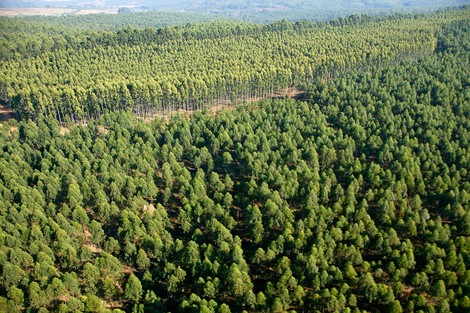Your podcast discovery platform
Curious minds select the most fascinating podcasts from around the world. Discover hand-piqd audio recommendations on your favorite topics.

piqer for: Climate and Environment Global finds Globalization and politics
I'm a freelance journalist, currently based in Madrid. I used to be a News Producer at CNBC in London before, but I thought a little bit more sun might do me good. Now I write for several news organizations, covering a range of topics, from Spanish politics and human rights for Deutsche Welle to climate change for La Marea.
What's The Downside Of Climate Techno-Solutions?
A few months back, I first read about BECCS. I was quite impressed then, and I even recommended reading about it here at PIQD. Since then, the idea of negative emissions has come to the forefront of the climate change debate. Can we limit Earth's warming to 1.5ºC (or even 2ºC) without the assistance of geoengineering? And if we resort to it, what will the negative consequences be?
BECCS stands for Biomass Energy with Carbon Capture and Sequestration. The basic idea is to grow trees (a process that captures CO2 from the atmosphere), and then burn them for energy. The plot twist here is to capture the CO2 that would result from this process and store it away. The result would be energy with negative emissions and a reduction in atmospheric CO2 concentration.
This week, Nature Climate Change published a study that shines a skeptical light over BECCS, and Daisy Dunne covered it for Carbon Brief in this excellent article (where she also takes a critical look at Solar Radiation Management technologies, the other major geoengineering proposed patch to climate change). The paper assumes that, while theoretically possible, the extensive use of BECCS would bring us myriad other problems, related to biodiversity and land and water use among others.
“Using large-scale biomass plantations to extract CO2 from the atmosphere might contribute to climate protection, but can lead to transgressing many other environmental limits, implying large risks for biodiversity, nutrient and water cycles and land use. Therefore, biomass as a means of CO2 removal can only be a limited contribution to sustainable climate mitigation pathways.”
As we move beyond political consensus and start drawing sensible ways forward to major climate action, geoengineering will start presenting its case. It will be very important, by then, to have an informed opinion and be able to ask the right questions. BECCS may still be a valid tool, but we must not trust on magic tricks to solve this major conundrum.

good piq! these scientists working at the potsdam institute are doing very important work for many years now and have, with good reason, achieved a high reputation. as far as i'm aware of they have in no single case tweaked their results to please politics or economy, that is, the great international energy companies. which is not a small feat.